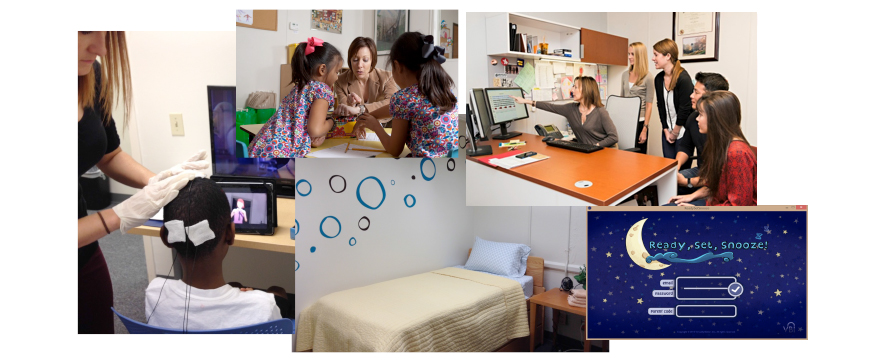Research Projects

Sleep, Circadian Rhythms, and Electronics Use in the Evening Study (SCREENS)
Children’s screen use has increased dramatically in recent years and may have impacts on children's sleep and daytime functioning. In this 5-year NICHD-funded study, we are systematically testing the impact of screen light exposure and different media content on children’s (8 to 11 years) sleep, executive functioning, and emotions. Email us at SACH@times.uh.edu to learn more.
Teens, Computers, and Sleep Study (ASPIRE)
This study is interested in understanding how sleep might influence computer use among adolescents. Teens between ages 13 and 18 years without mental health disorders and who typically sleep between 6 and 8 hours per night may be eligible. Please fill out our interest survey or reach us at AspireSleep@gmail.com and 832-387-4402 to learn more.
Melatonin Use Among Children
Melatonin use among children continues to rise even though little is know about its efficacy and safety in different populations. This study includes a one-time, anonymous online survey for both foster and biological parents of children ages 4 to 12 years, who have taken melatonin at least once in the past 30 days. Contact us at melatoninusesurvey@gmail.com to learn more or go to https://bit.ly/child-melatonin-use-survey.
Sleep and Adjustment in Foster Environments (SAFE)
At young ages, healthy sleep is dependent upon feelings of safety, secure attachment to a caregiver, and a stable home environment; all of which are attenuated among children placed in foster care. Sleep disturbances are among the most common consequences of maltreatment and trauma and occur at high rates in this vulnerable group of children. Through research grants from the University of Houston and NIMH we are developing and testing a trauma-informed behavioral sleep intervention for children in foster care. Foster families who have had a child between the ages of 2 and 10 years may be eligible to receive a free intervetion. Please email fostersleepintervention@gmail.com or call 713-743-3400 to learn more.
Sleep in Sexual Minority Adults at Risk for Thoughts of Suicide (Sleep SMARTS)
Suicide is a significant public health concern, particularly among sexual minority populations. One known risk factor for suicidal thoughts and behaviors is sleep disturbance, which is experienced at disproportionately high rates among sexual minority individuals. This study examines associations between sleep disturbance, sexual minority stress, and suicidal thoughts and behaviors among lesbian, gay, and bisexual young adults (ages 18-25). Participants are compensated for their time. Please email SleepSMARTSteam@gmail.com or call +7137433400 to learn more.